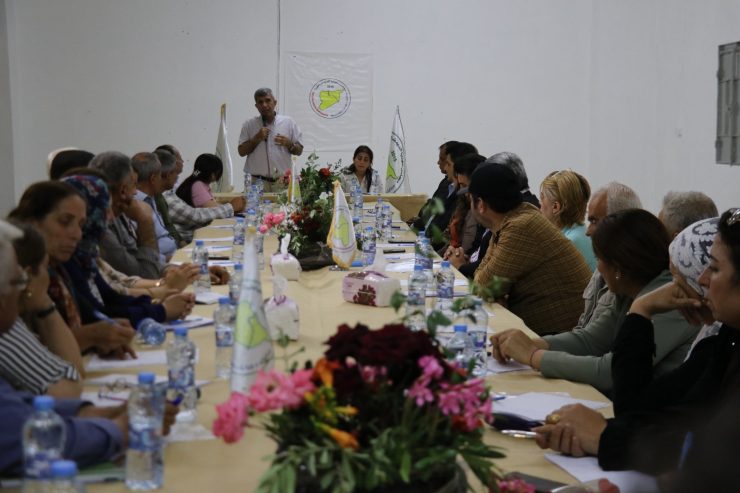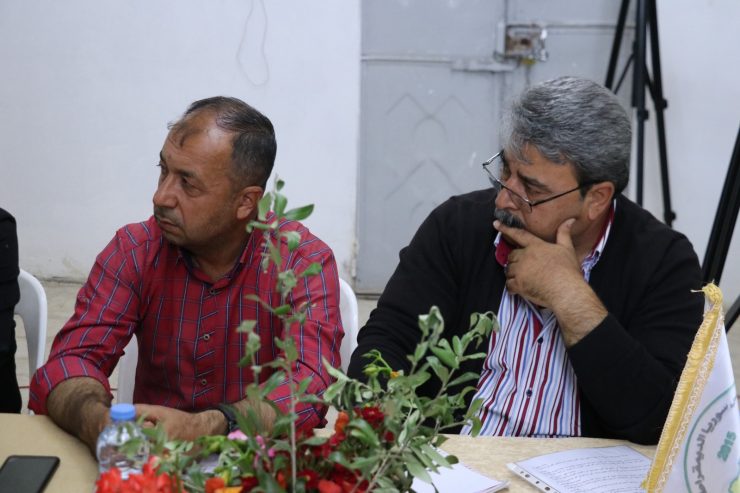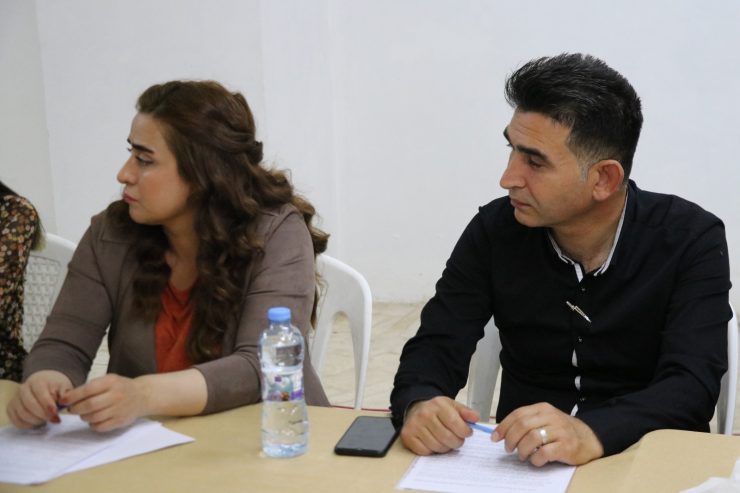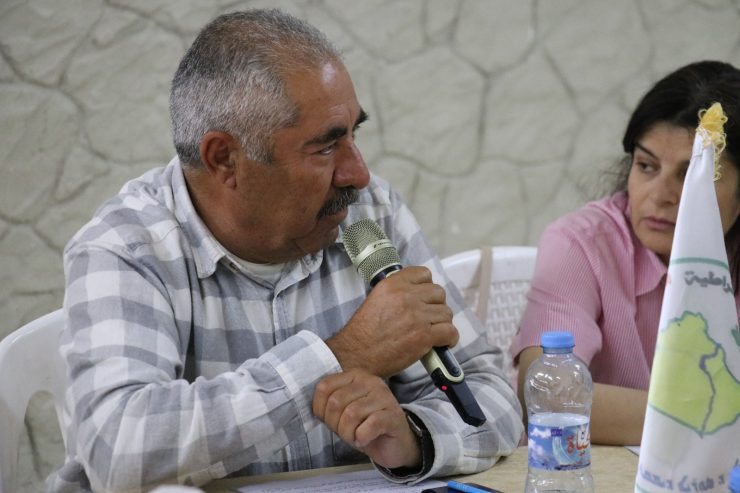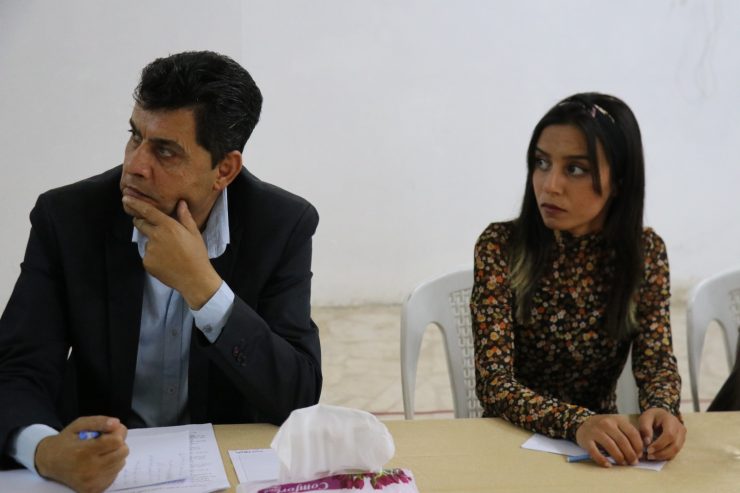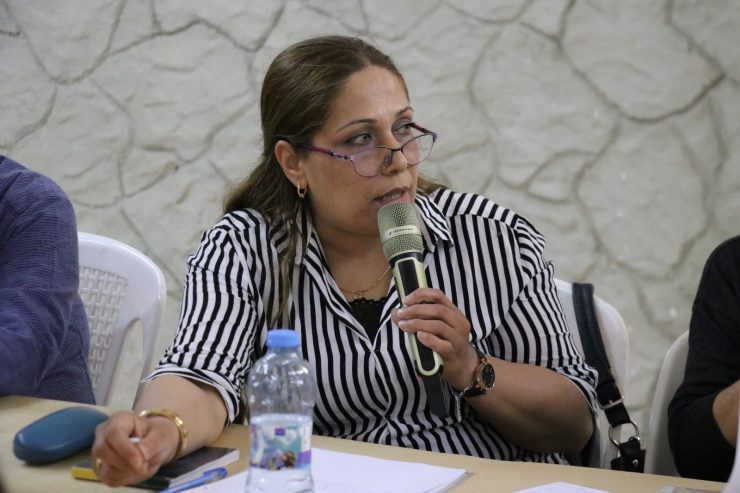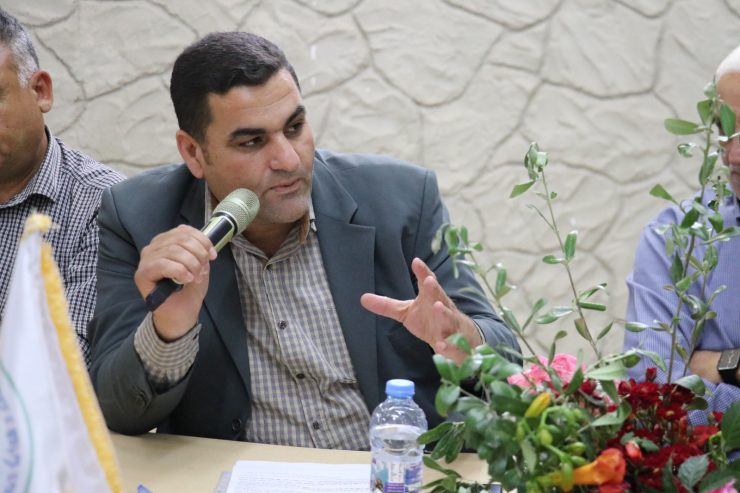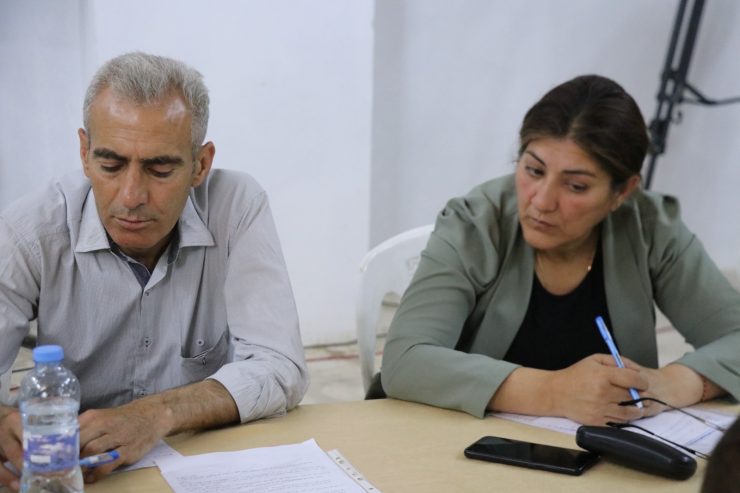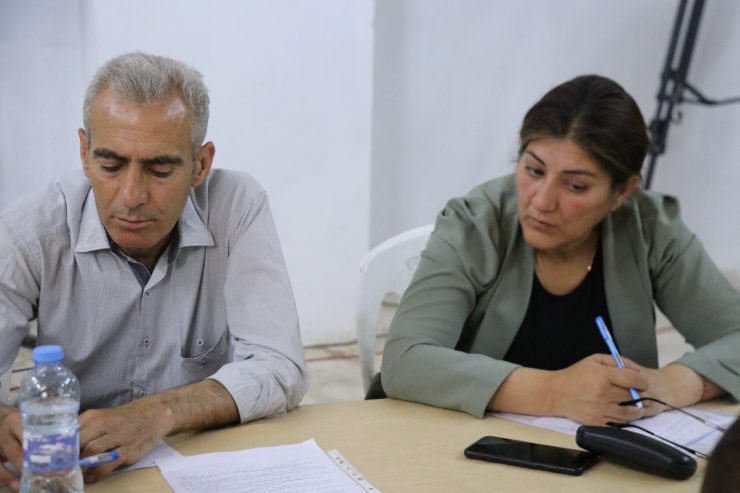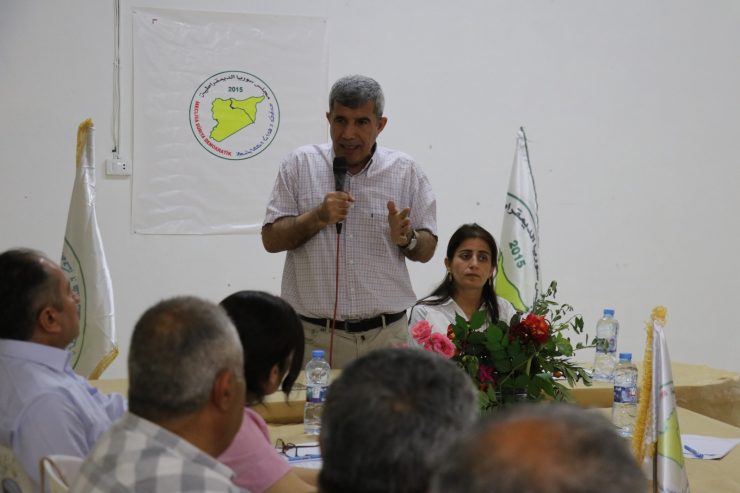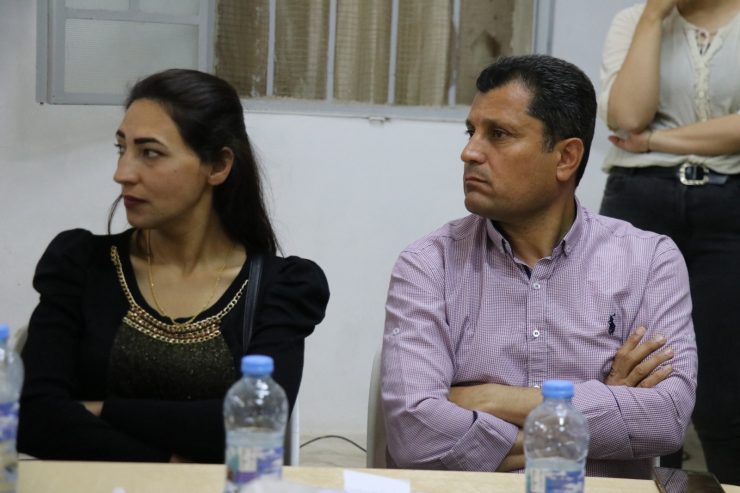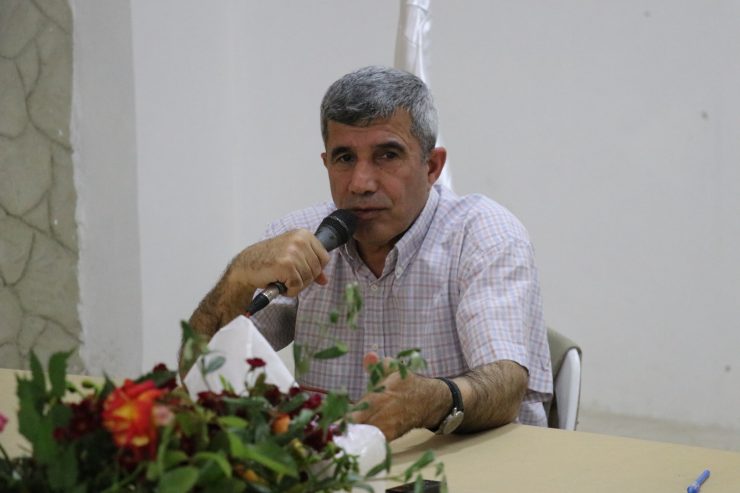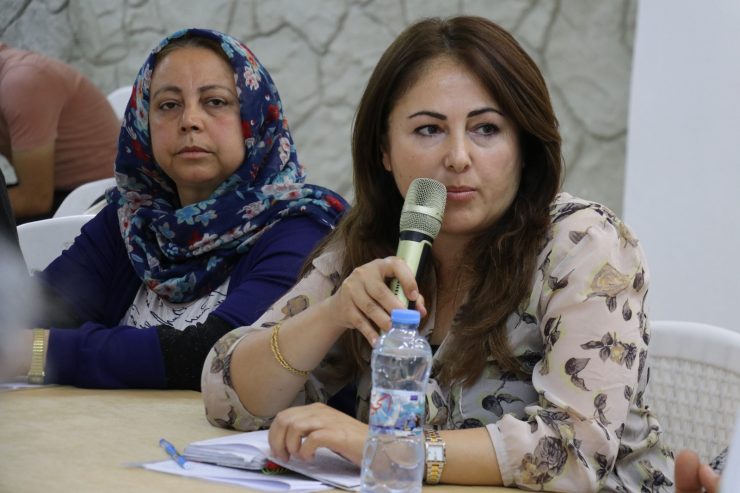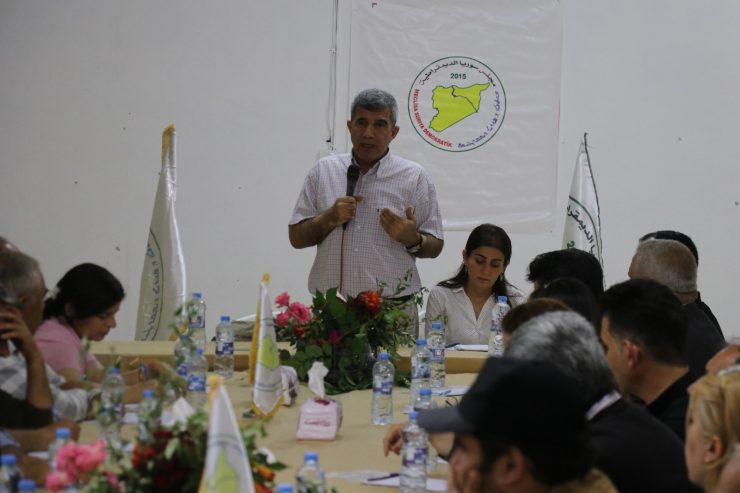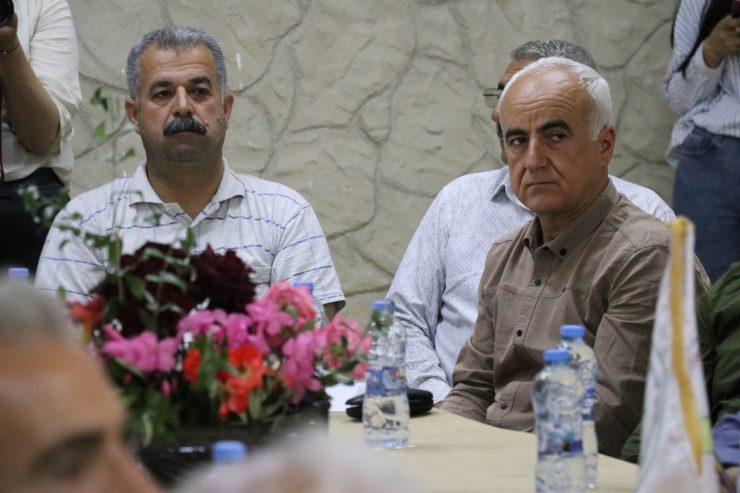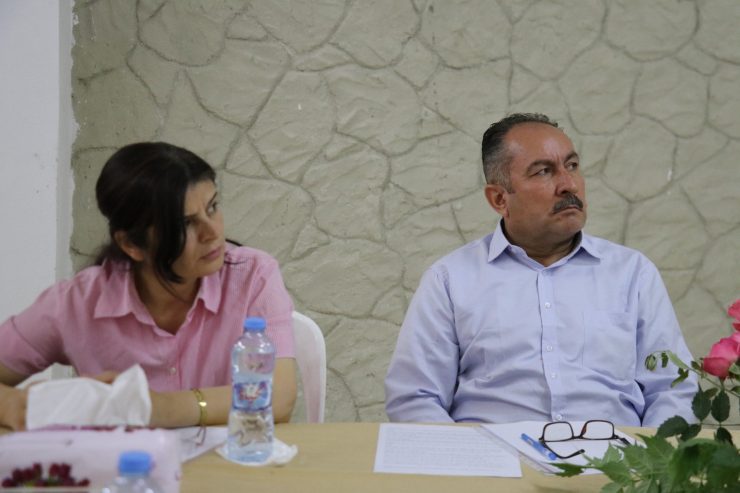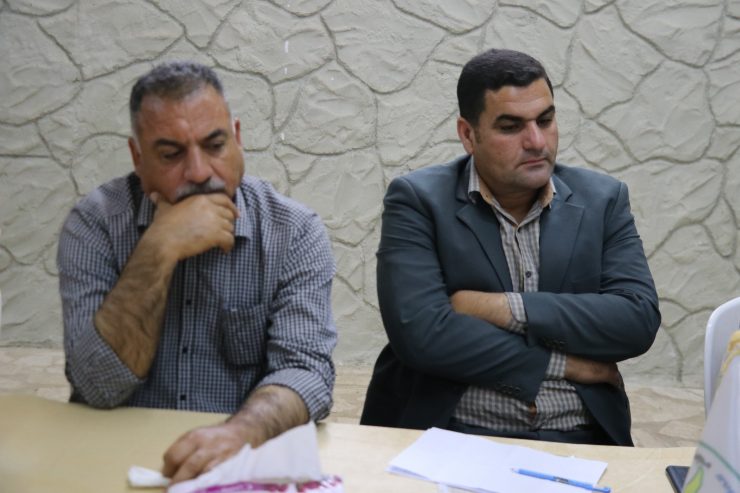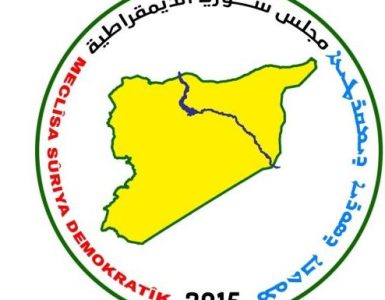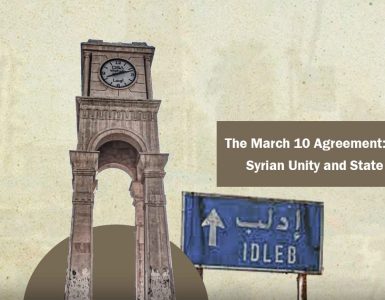In light of the accelerating events regarding the Syrian scene, particularly after Syria’s reintegration into the Arab surrounding, an elite of Syrians discussed the Arab normalization and its implications on Syria in general and northeastern Syria in particular.
That took place during a dialogue meeting organized by the Syrian Democratic Council, held in the town of Tel Sosin in Al-Shahbaa region, north of Aleppo. The meeting was attended by a member of the Executive Body of the Syrian Democratic Council, Hassan Muhammed Ali, an elite of Syrians representing councils, political parties, and elders, as well as independent figures from the city of Aleppo.
Hassan Muhammed, the Co-Chair of the Relations Bureau and a member of the Executive Body of the SDC, provided a detailed explanation of the Arab normalization process with the authorities in Damascus and its political contexts. He also discussed international and regional positions regarding normalization and its repercussions on the region and its future. He pointed out the recent developments, including Arab normalization, as a result of the international conflict.
“The process of Arab and regional normalization, in the context of a country suffering from division, has motives and reasons that are based on the interests of the states involved in this normalization with the authorities,” He added. He also pointed out that there are international and regional challenges, including the Turkish and Iranian presence in Syria.
Muhammed Ali appreciated the Arab efforts, including the return of Syria to the Arab League, stating, “The rapprochement should serve the interests of the Syrian people, preserve the unity of Syria, and contribute to a political resolution within the framework of resolving the Syrian issue, rather than normalization at the expense of the Syrian people and the restoration of the rule of the authoritarian regime”.
He concluded by saying that “The SDC is always ready to dialogue with all Syrian parties. There will be no resolution without activating a political resolution that leads to the participation of everyone in a purposeful Syrian dialogue that safeguards the rights of all Syrian components”.
On the other hand, the human rights activist Ibrahim Sheikho stated that Arab or Turkish normalization with the authorities in Damascus came after the quadrilateral meetings between Russia, Turkey, Iran, and Syria (the authorities in Damascus). He compared these convergences to the Astana format, which deviates from the Geneva decisions and the path of the Syrian political resolution, especially Resolution 2254.
In response to the Arab rapprochement with Damascus, Miaad Arslan, one of the region’s elders, believed that they were international messages and resolutions that solidify the control over the Syrian decision and propose resolutions that correspond to the conditions of the stage and control the decisions of Syrians.
Meanwhile, the independent politician Waleed Al-Ghubari emphasized the importance of finding a political resolution that begins with dialogue among all segments of the Syrian people, the return of displaced persons and refugees to their areas, the release of detainees, and ending the suffering of Syrians.
Zilokh Bakr, the Co-administrator of the Education Committee of the Democratic Society Foundation, called on countries seeking to restore their relations with Damascus to ensure that these relations are based on democratic foundations that consider the interests of Syrians.
It is worth mentioning that there were participations by participants affirming that any normalization or settlement attempts that do not represent the aspirations of the Syrian people will lead to the fragmentation of the Syrian situation, deepen the Syrian suffering, and result in further destruction and devastation.


